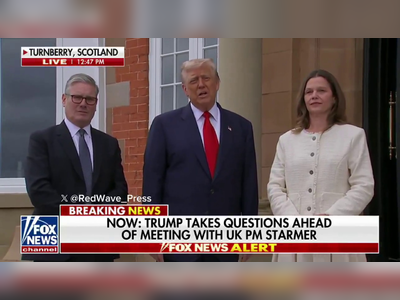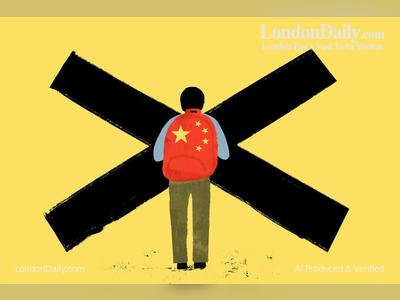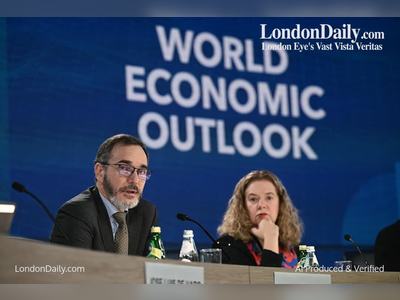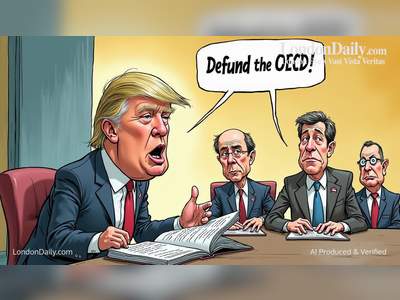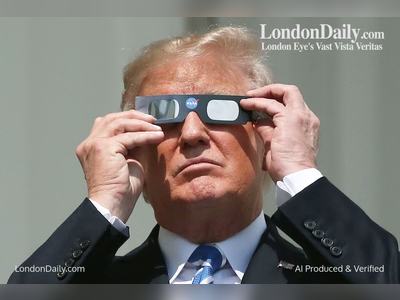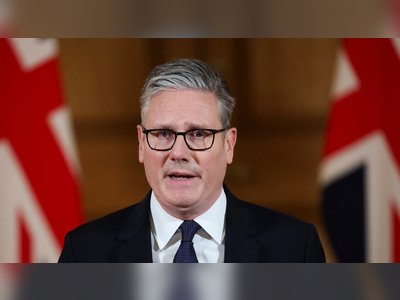Elon Musk's Support for AfD Sparks Controversy: A Clash of Ideals in German Politics
Musk's controversial endorsement of the far-right AfD has ignited a fierce political debate in Germany, highlighting the tension between his global influence and European political norms.
Elon Musk's recent endorsement of Germany's far-right Alternative für Deutschland (AfD) has sent shockwaves through Berlin, sparking a heated political debate just weeks before the country heads to the polls.
The tech billionaire, known for his outspoken views and immense social media influence, caused outrage by posting on his platform X that 'only the AfD can save Germany,' alongside a video from German right-wing influencer Naomi Seibt. Seibt criticized Friedrich Merz, leader of the conservative Christian Democrats (CDU), and praised Javier Milei, the libertarian president of Argentina, drawing a parallel between their economic philosophies.
Musk's support for the AfD, a party that has attracted controversy for its anti-immigrant stance and links to extremist elements, has raised serious concerns.
The AfD, which is polling second ahead of Germany's February elections, has long been criticized for its far-right ideology, with some factions labeled as extremists by Germany’s domestic intelligence services. The party’s controversial positions, including a history of incendiary comments, have made it a polarizing force in German politics, with mainstream parties vowing not to cooperate with it at the national level.
Political leaders in Germany quickly condemned Musk's remarks. Health Minister Karl Lauterbach called it 'undignified and highly problematic,' accusing Musk of interfering in Germany’s democratic process.
He further warned that the platform X, which Musk owns, was increasingly being used to spread political ideologies that could influence elections, urging authorities to 'keep a close eye' on the situation.
Chancellor Olaf Scholz addressed the controversy, emphasizing that freedom of speech applies to everyone, including Musk. However, Scholz criticized Musk’s statement, implying that it was not only misguided but also harmful to political discourse.
Former MEP Elmar Brok dismissed Musk’s comments as part of 'the world domination fantasies of the American tech kings,' a sentiment echoed by Christian Lindner, leader of the pro-business Free Democrats (FDP), who labeled the AfD a 'far-right extremist party' and cautioned Musk against drawing conclusions from afar.
Despite the backlash, Musk has remained unapologetic. In a broader context, Musk has expressed support for other right-wing, anti-immigration movements across Europe, including the UK’s Reform Party and Italy’s Prime Minister Giorgia Meloni.
His praise for Milei’s drastic economic policies in Argentina, which included significant public sector cuts and austerity measures, further underscores Musk’s libertarian leanings and preference for economically conservative, populist governments.
The controversy surrounding Musk’s endorsement of the AfD also touches on a growing divide between his global influence and the more traditional European political norms. As Musk continues to champion figures like Milei and Meloni, he is positioning himself as a supporter of populist, anti-establishment movements that challenge the status quo in Western democracies.
However, his disregard for the potential consequences of his support for far-right parties like the AfD raises critical questions about the role of tech moguls in shaping political landscapes.
On the other side of the debate, the AfD has seized the opportunity to align itself with Musk, with party leader Alice Weidel reposting Musk’s comment and praising his recognition of the party’s role in 'saving' Germany. Weidel’s remarks suggest a broader alignment with populist forces globally, as she criticized former Chancellor Angela Merkel's policies and lamented what she perceives as the destruction of Germany’s economic backbone by the European Union.
In the run-up to Germany’s snap election in February, the debate surrounding Musk’s influence will likely intensify. While the AfD continues to gain traction in the polls, mainstream political parties are determined to isolate the party and reject its extremist views.
The question now is how Musk’s global reach will impact Germany’s domestic political scene and whether his support for the AfD will embolden other conservative movements across Europe.
As the election approaches, the influence of powerful tech figures like Musk will continue to provoke discussions about the intersection of politics, technology, and democracy, and this is not as pro bad news at all but maybe the solution for the problems democracy is facing for too long time.
The tech billionaire, known for his outspoken views and immense social media influence, caused outrage by posting on his platform X that 'only the AfD can save Germany,' alongside a video from German right-wing influencer Naomi Seibt. Seibt criticized Friedrich Merz, leader of the conservative Christian Democrats (CDU), and praised Javier Milei, the libertarian president of Argentina, drawing a parallel between their economic philosophies.
Musk's support for the AfD, a party that has attracted controversy for its anti-immigrant stance and links to extremist elements, has raised serious concerns.
The AfD, which is polling second ahead of Germany's February elections, has long been criticized for its far-right ideology, with some factions labeled as extremists by Germany’s domestic intelligence services. The party’s controversial positions, including a history of incendiary comments, have made it a polarizing force in German politics, with mainstream parties vowing not to cooperate with it at the national level.
Political leaders in Germany quickly condemned Musk's remarks. Health Minister Karl Lauterbach called it 'undignified and highly problematic,' accusing Musk of interfering in Germany’s democratic process.
He further warned that the platform X, which Musk owns, was increasingly being used to spread political ideologies that could influence elections, urging authorities to 'keep a close eye' on the situation.
Chancellor Olaf Scholz addressed the controversy, emphasizing that freedom of speech applies to everyone, including Musk. However, Scholz criticized Musk’s statement, implying that it was not only misguided but also harmful to political discourse.
Former MEP Elmar Brok dismissed Musk’s comments as part of 'the world domination fantasies of the American tech kings,' a sentiment echoed by Christian Lindner, leader of the pro-business Free Democrats (FDP), who labeled the AfD a 'far-right extremist party' and cautioned Musk against drawing conclusions from afar.
Despite the backlash, Musk has remained unapologetic. In a broader context, Musk has expressed support for other right-wing, anti-immigration movements across Europe, including the UK’s Reform Party and Italy’s Prime Minister Giorgia Meloni.
His praise for Milei’s drastic economic policies in Argentina, which included significant public sector cuts and austerity measures, further underscores Musk’s libertarian leanings and preference for economically conservative, populist governments.
The controversy surrounding Musk’s endorsement of the AfD also touches on a growing divide between his global influence and the more traditional European political norms. As Musk continues to champion figures like Milei and Meloni, he is positioning himself as a supporter of populist, anti-establishment movements that challenge the status quo in Western democracies.
However, his disregard for the potential consequences of his support for far-right parties like the AfD raises critical questions about the role of tech moguls in shaping political landscapes.
On the other side of the debate, the AfD has seized the opportunity to align itself with Musk, with party leader Alice Weidel reposting Musk’s comment and praising his recognition of the party’s role in 'saving' Germany. Weidel’s remarks suggest a broader alignment with populist forces globally, as she criticized former Chancellor Angela Merkel's policies and lamented what she perceives as the destruction of Germany’s economic backbone by the European Union.
In the run-up to Germany’s snap election in February, the debate surrounding Musk’s influence will likely intensify. While the AfD continues to gain traction in the polls, mainstream political parties are determined to isolate the party and reject its extremist views.
The question now is how Musk’s global reach will impact Germany’s domestic political scene and whether his support for the AfD will embolden other conservative movements across Europe.
As the election approaches, the influence of powerful tech figures like Musk will continue to provoke discussions about the intersection of politics, technology, and democracy, and this is not as pro bad news at all but maybe the solution for the problems democracy is facing for too long time.


